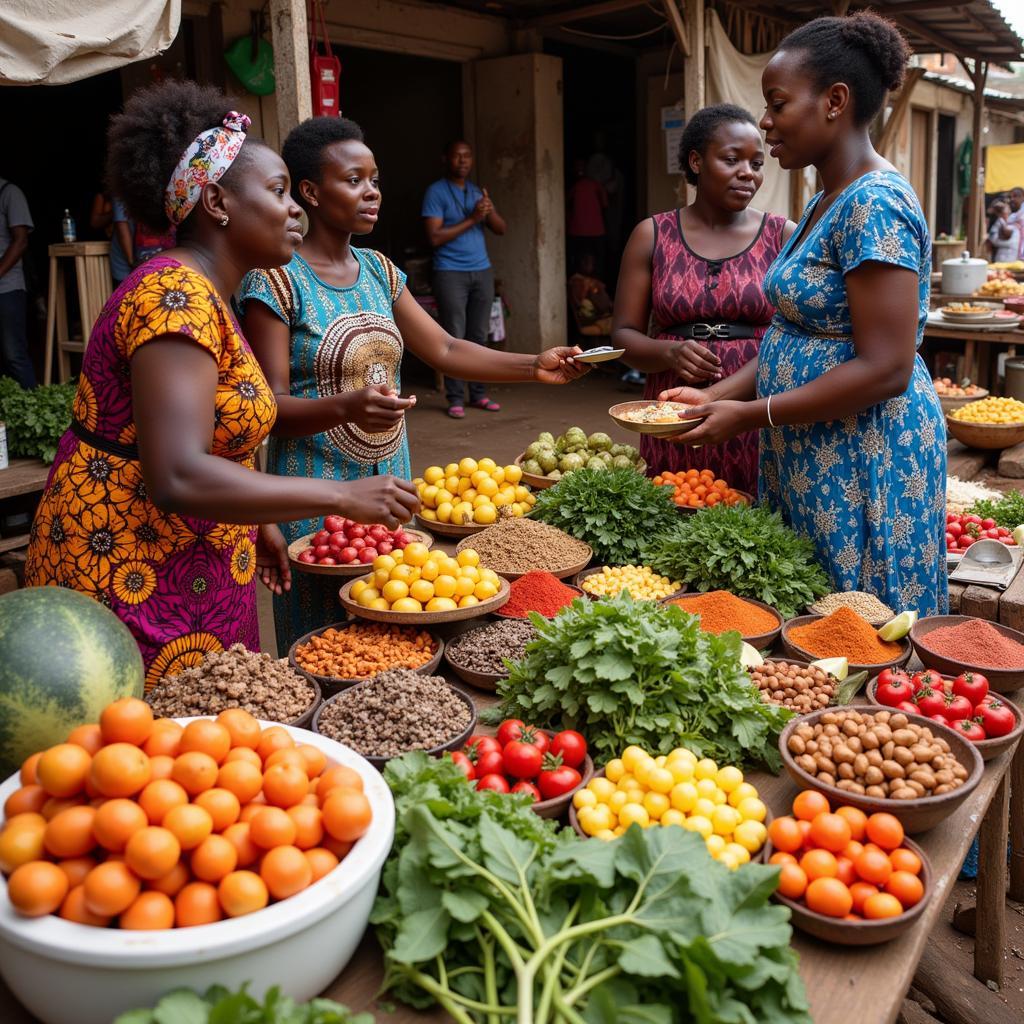African Continental Free Trade Area Countries: A Comprehensive Guide
The African Continental Free Trade Area (AfCFTA) is a landmark agreement that promises to transform the African economy by creating a single market for goods and services across the continent. With 54 of the 55 African Union (AU) member states signed up, the AfCFTA is the largest free trade area in the world by number of participating countries.
The AfCFTA aims to boost intra-African trade, stimulate economic growth, and create jobs. It seeks to achieve this by eliminating tariffs, reducing non-tariff barriers, and promoting investment in infrastructure and industrial development.
What is the AfCFTA?
The AfCFTA is a free trade agreement that aims to eliminate tariffs and other trade barriers between its member countries. It is designed to create a single market for goods and services, making it easier for businesses to trade across borders.
The AfCFTA is based on the principle of reciprocal trade liberalization, meaning that all member countries agree to reduce or eliminate tariffs and other barriers on imports from other member countries. It also includes provisions for investment liberalization, competition policy, intellectual property, and dispute settlement.
Countries in the African Continental Free Trade Area
The AfCFTA currently has 54 member states, with only Eritrea yet to sign on. These countries are divided into five regions:
- North Africa: Algeria, Egypt, Libya, Morocco, Sudan, Tunisia.
- West Africa: Benin, Burkina Faso, Cabo Verde, Côte d’Ivoire, Gambia, Ghana, Guinea, Guinea-Bissau, Liberia, Mali, Mauritania, Niger, Nigeria, Senegal, Sierra Leone, Togo.
- Central Africa: Cameroon, Central African Republic, Chad, Democratic Republic of Congo, Equatorial Guinea, Gabon, Republic of Congo.
- East Africa: Burundi, Comoros, Djibouti, Eritrea, Ethiopia, Kenya, Madagascar, Malawi, Mauritius, Rwanda, Seychelles, Somalia, South Sudan, Tanzania, Uganda.
- Southern Africa: Angola, Botswana, Eswatini, Lesotho, Namibia, South Africa, Zambia, Zimbabwe.
Benefits of the African Continental Free Trade Area
The AfCFTA is expected to bring numerous benefits to its member countries, including:
- Increased Trade: By reducing tariffs and other trade barriers, the AfCFTA is expected to increase intra-African trade significantly.
- Economic Growth: Increased trade is expected to boost economic growth in member countries, creating jobs and improving living standards.
- Investment: The AfCFTA is expected to attract more foreign investment into Africa, as businesses see the continent as a more attractive market for investment.
- Job Creation: The AfCFTA is expected to create millions of jobs in Africa, as businesses expand their operations to take advantage of the new market opportunities.
- Industrial Development: The AfCFTA is expected to encourage industrial development in Africa, as businesses seek to take advantage of the new market opportunities.
- Reduced Poverty: By boosting economic growth and creating jobs, the AfCFTA is expected to reduce poverty levels in Africa.
Challenges to the African Continental Free Trade Area
Despite the potential benefits of the AfCFTA, there are also some challenges that need to be addressed. These include:
- Implementation: The successful implementation of the AfCFTA will require a significant effort from all member countries, including the development of new infrastructure, harmonization of trade regulations, and capacity building.
- Non-Tariff Barriers: While the AfCFTA aims to reduce tariffs, non-tariff barriers remain a significant obstacle to trade in Africa. These barriers can include complex customs procedures, bureaucratic delays, and lack of infrastructure.
- Infrastructure: Africa’s infrastructure is inadequate in many areas, making it difficult and expensive to transport goods across borders.
- Political Instability: Political instability and conflict in some parts of Africa can disrupt trade flows and make it difficult to implement the AfCFTA.
- Competition: Businesses in some member countries may face strong competition from other member countries, which could lead to job losses and business failures.
Conclusion
The African Continental Free Trade Area is a significant development for Africa, offering the potential for increased trade, economic growth, and job creation. However, the AfCFTA will require a significant effort from all member countries to implement successfully. By addressing the challenges, the AfCFTA can help to transform the African economy and create a more prosperous future for the continent.
Dr. Amina Mohamed, former AU Trade Commissioner: “The AfCFTA has the potential to unlock the full potential of Africa’s economy. It is a powerful tool for creating jobs, reducing poverty, and promoting sustainable development.”
FAQ
Q: What is the difference between the AfCFTA and the African Union (AU)?
A: The African Continental Free Trade Area (AfCFTA) is a trade agreement between African countries, while the African Union (AU) is a political and economic union of African countries. The AfCFTA is a part of the AU’s Agenda 2063, which aims to create a more prosperous and integrated Africa.
Q: When did the AfCFTA come into effect?
A: The AfCFTA came into effect on May 30, 2019.
Q: How will the AfCFTA affect my business?
A: The AfCFTA presents both opportunities and challenges for businesses. It can offer new market opportunities, but it also requires businesses to adapt to new regulations and trade processes.
Q: What are some of the key sectors that are expected to benefit from the AfCFTA?
A: Key sectors expected to benefit from the AfCFTA include agriculture, manufacturing, services, and tourism.
Q: What are the challenges to implementing the AfCFTA?
A: Challenges to implementing the AfCFTA include the need for improved infrastructure, harmonization of trade regulations, and capacity building.
Q: How can I learn more about the AfCFTA?
A: You can learn more about the AfCFTA by visiting the African Union website or the AfCFTA website.
If you have any questions, please contact us at:
- Phone: +255768904061
- Email: kaka.mag@gmail.com
- Address: Mbarali DC Mawindi, Kangaga, Tanzania
We have a 24/7 customer support team ready to assist you.



